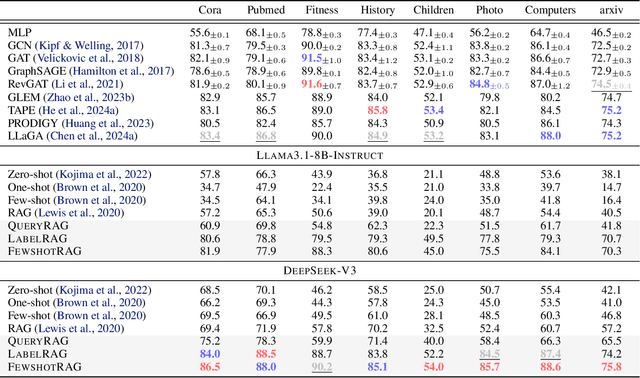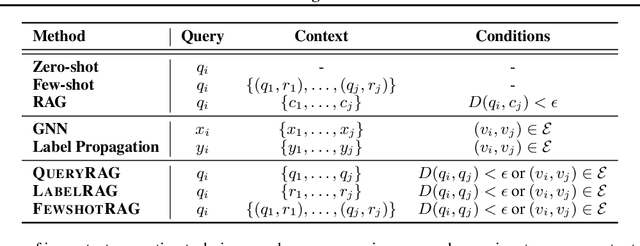Are Large Language Models In-Context Graph Learners?
Paper and Code
Feb 19, 2025



Large language models (LLMs) have demonstrated remarkable in-context reasoning capabilities across a wide range of tasks, particularly with unstructured inputs such as language or images. However, LLMs struggle to handle structured data, such as graphs, due to their lack of understanding of non-Euclidean structures. As a result, without additional fine-tuning, their performance significantly lags behind that of graph neural networks (GNNs) in graph learning tasks. In this paper, we show that learning on graph data can be conceptualized as a retrieval-augmented generation (RAG) process, where specific instances (e.g., nodes or edges) act as queries, and the graph itself serves as the retrieved context. Building on this insight, we propose a series of RAG frameworks to enhance the in-context learning capabilities of LLMs for graph learning tasks. Comprehensive evaluations demonstrate that our proposed RAG frameworks significantly improve LLM performance on graph-based tasks, particularly in scenarios where a pretrained LLM must be used without modification or accessed via an API.
 Add to Chrome
Add to Chrome Add to Firefox
Add to Firefox Add to Edge
Add to Edge